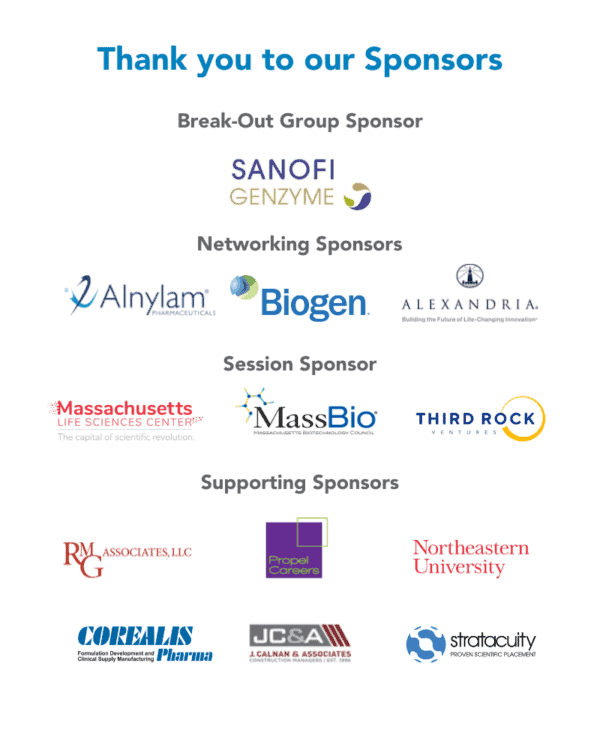Events
The Life Sciences Workforce Conference is uniquely devoted to bringing together the life sciences industry and academia to discuss training of the next generation of leaders. The event provides an opportunity for industry professionals and academicians to hear from each other, and to hold meaningful conversations about education and training as well as career exploration and readiness. The 2021 Life Sciences Workforce Conference will be both informative and highly interactive with built in time for discussing topics together and developing solutions!
View the 2021 Program
Agenda
| 10:00am – 10:15am |
Welcome Remarks
|
| 10:15am – 11:00am |
MassBioEd’s 2021 Life Sciences Employment Outlook and Q&A
|
| 11:00am – 12:00pm |
Expanding the Pool of Workers: Specific Workforce Challenge Areas Presentations and Facilitated Group Discussions:
|
| 12:00pm – 1:00pm | Open Networking & Lunch Break |
| 1:00pm – 1:55pm |
Flexibility and Mobility of the New Workforce and Q&A
|
| 1:55pm – 2:50pm |
Expanding Landscape of the Life Sciences Across Massachusetts and Q&A
|
| 2:50pm – 3:00pm | Conclusion |
Featured Topics
MassBioEd’s 2021 Life Sciences Employment Outlook: Hot off the press, the report will be released in conjunction with the conference and will cover the effects of 2020 on the life sciences workforce – including COVID-19 and calls for racial equity – as well as historical trends in overall employment and hiring demand.
Expanding the Pool of Workers: Everyone agrees that supply of talent is not keeping up with the demand, and traditional ways of recruitment are not adequate.
- How do we grow the pool of qualified job seekers?
- How do college students view the viability and attractiveness of a career in biopharma relative to other fields?
- What new innovations will ensure an inclusive culture as the workforce is diversified?
Flexibility and Mobility of the New Workforce: 2020 proved beyond a doubt that the traditional workplace and structure are not essential to a highly productive workforce. Companies are already hiring worldwide for certain positions with the intent of never bringing newcomers into a traditional work environment.
- What should the future workforce look like?
- How will the new workforce structure affect Massachusetts and the life sciences industry?
Expanding Landscape of the Life Sciences Across Massachusetts: Many companies have announced plans to construct new offices, labs, and especially biomanufacturing facilities in Massachusetts over the past year. Our talent supply was already inadequate for the demand.
- Who will work in these new jobs?
- How will Massachusetts meet this new level of demand?
- Are new training mechanisms needed?


 MassBioEd
MassBioEd